2023 GEORGIA TECH SYMPOSIUM & WORKSHOP
January 5-6, 2023
The Materials Characterization Facility is pleased to announce that in January, in collaboration with Rigaku, the MCF will be hosting a workshop on X-ray diffraction. January 5th will feature seminars from researchers across the southeast including but not limited to Clemson, Emory, and Florida State University. January 6th will feature hands on training and application of techniques and showing off the capabilities of the tools and the software.
Registration | Program | Presenters | Location| Recordings
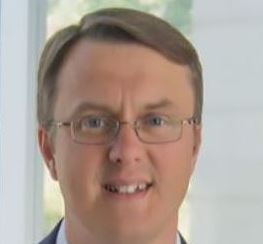
Dr. Angus Wilkinson
Georgia Institute of Technology
Angus Wilkinson is a professor in the School of Chemistry and Biochemistry and holds a joint appointment with the School of Materials Science and Engineering. Dr. Wilkinson obtained his bachelors degree in chemistry from Oxford University in 1988. He was a graduate student with Dr. A. K. Cheetham in the Department of Chemical Crystallography /Inorganic Chemistry at Oxford from 1988 until December 1991. His graduate work focused on the application of synchrotron X-ray powder diffraction to problems in solid-state chemistry.
For the last two years of his graduate studies he held a senior Scholarship from Christ Church, Oxford. From October 1991 until June 1993, Dr. Wilkinson was a Junior Research Fellow with Christ Church, Oxford. However, most of this period was spent on leave at the Materials Research Laboratory, University of California Santa Barbara. His work in Santa Barbara focused on the processing and structure of oxide ferroelectric materials. In October 1993 he joined the faculty at the Georgia Institute of Technology as an assistant professor. He received tenure in 1999 and was promoted to full professor in 2004. He is currently Associate Chair for operations in the School of Chemistry and Biochemistry.
His work at Georgia Tech has been wide ranging. Current projects include the synthesis and characterization of negative thermal expansion ceramics, in-situ studies of cement hydration under oil well conditions (high pressure and temperature) using x-ray and ultrasonic techniques, and the development of reversible carbon dioxide adsorbents. Previous work at Georgia Tech has included an exploration of chiral templates for the synthesis of chiral microporous materials, the low temperature synthesis of ferroelectrics, an exploration of low oxidation state gallium and indium oxide chemistry with a view to finding new ferroelectric and nonlinear optical materials, the development of resonant x-ray scattering methods for use on thermoelectric energy conversion materials, and an examination of cement durability under sulfate attack conditions using high energy x-ray scattering combined with microtomography.
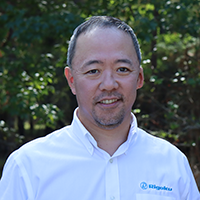
Dr. Keisuke Saito
Rigaku
For over 25 years Keisuke's work has been focused on X-ray diffraction for materials science. He has been appointed Product Manager for XRD in Rigaku since 2011. Keisuke holds a Ph.D. in Material Science from the Tokyo Institute of Technology.
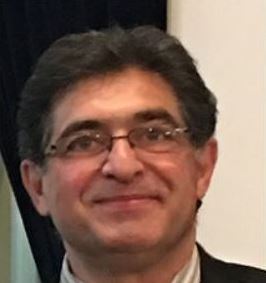
Dr. Hamid Garmestani
Georgia Institute of Technology
Dr. Hamid Garmestani is a Professor in the School of Materials Science and Engineering at the Georgia Institute of Technology. He received his education from Cornell University (Ph.D. 1989 in Theoretical and Applied Mechanics) and the University of Florida (B.S. 1982 in Mechanical Engineering, M.S. 1984 in Materials Science and Engineering). After serving a year as a post -doctoral fellow at Yale University, he joined the Mechanical Engineering Department at Florida State University (FAMU-FSU College of Engineering) in 1990.
Primary research and teaching interests include microstructure/property relationship in textured polycrystalline materials, composites, superplastic, magnetic and thin film layered structures. He uses phenomenological and statistical mechanics models in a computational framework to investigate microstructure and texture (micro-texture) evolution during processing and predict effective properties (mechanical, transport and magnetic). His present research interests are processing of fuel cell materials and modeling of their transport and mechanical properties.
Dr. Garmestani has been the recipient of a research award (FAR) through NASA in 1997. He received the Superstar in Research award in 1999 by FSU-CRC. He has also been the recipient of the Engineering Research Award at the FAMU-FSU College of Engineering, Spring 2000. He is a member of the editorial board of the International Journal of Plasticity and board of reviewers for journal of Metal Transaction. He is presently funded through NSF (MRD), NASA, Air Force and the Army.
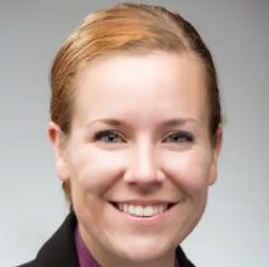
Dr. Lauren Garten
Georgia Institute of Technology
Subject: New materials for energy and electronic applications
Lauren Garten joined the School of Material Science and Engineering as an assistant professor in Fall 2021. Her group focuses on developing new materials for energy and electronic applications, particularly at the nexus between ferroelectricity, ferromagnetism, electronics, and photovoltaics.
Lauren received her B.S. in ceramic engineering from the Missouri University of Science and Technology. She then went on to earn a Ph.D. in material science from the Pennsylvania State University for her work on ferroelectric, piezoelectric, and dielectric synthesis and characterization with Prof. Susan Trolier-McKinstry. She then became a post-doc at the National Renewable Energy Laboratory working on metastable materials for energy applications. After a very short stint as a material scientist at Sandia National Laboratory, she won the NRC Research Associateship from the National Academies of Science, Engineering, and Math which was hosted at the U.S. Naval Research Lab (NRL). She then received the Jerome and Isabella Karle Distinguished Scholar Fellowship from NRL to work on lead-free multiferroic materials and devices.
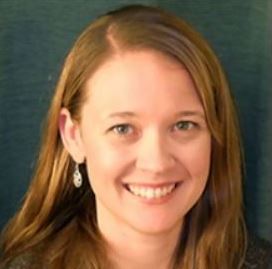
Dr. Blair BrettmanN
Georgia Institute of Technology
https://brettmannlab.gatech.edu/dr-brettmann/
Subject: Polymer characterization
Blair Brettmann received her B.S. in Chemical Engineering at the University of Texas at Austin in 2007. She received her Master's in Chemical Engineering Practice from MIT in 2009 following internships at GlaxoSmithKline (Upper Merion, PA) and Mawana Sugar Works (Mawana, India).
Blair received her Ph.D. in Chemical Engineering at MIT in 2012 working with the Novartis-MIT Center for Continuous Manufacturing under Prof. Bernhardt Trout. Her research focused on solid-state characterization and application of pharmaceutical formulations prepared by electrospinning.
Following her Ph.D., Blair worked as a research engineer for Saint-Gobain Ceramics and Plastics for two years. While at Saint-Gobain she worked on polymer-based wet coatings and dispersions for various applications, including window films, glass fiber mats and architectural fabrics. Later, Blair served as a postdoctoral researcher in the Institute for Molecular Engineering at the University of Chicago with Prof. Matthew Tirrell.
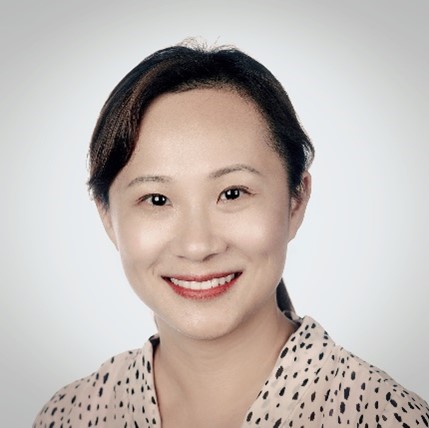
Dr. Yuanzhi Tang
Georgia Institute of Technology
Subject: Multi-scale Characterization of Complex Natural Materials
Yuanzhi Tang is the Blanchard Early Career Professor at the School of Earth and Atmospheric Sciences and School of Civil and Environmental Engineering at Georgia Tech. A graduate of SUNY-Stony Brook in 2008, she worked as a postdoc at Harvard University before joining Georgia Tech in 2012. Her highly interdisciplinary research focuses on understanding the molecular scale chemical reactions at mineral-water interfaces in both natural and engineered systems. By combining laboratory observations with advanced synchrotron X-ray spectroscopy, microscopy, and scattering techniques, her research aims to obtain a fundamental understanding of the biogeochemical cycling of contaminants and nutrients, as well as the occurrence and extraction of critical metals and nutrients from natural or alternative resources.
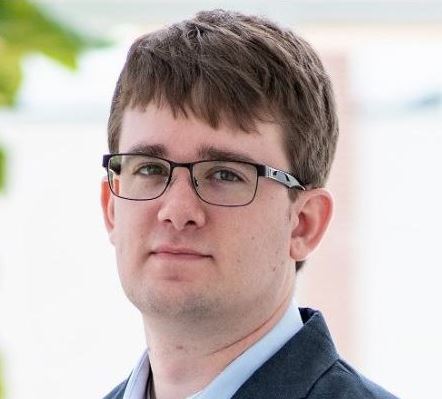
Dr. Steven Crawford
JSNN
https://jsnn.ncat.uncg.edu/
Steven Crawford is Equipment Manager at the Joint School of Nanoscience and Nanoengineering (JSNN), Georgia Tech's partner within SENIC (Southeastern Nanotechnology Infrastructure Corridor) which is part of the NSF-funded National Nanotechnology Coordinated Infrastructure (NNCI). Steven received his PhD in Nanoscience at JSNN in 2019 and has worked in various roles at the school since 2011. At present, he is responsible for installation, repair, and all "back-end" duties for the wide array of instrumentation located at JSNN while also serving as the acting cleanroom manager. Steven is also preparing for the delivery and installation of JSNN's own Rigaku Smartlab instrument due this semester.
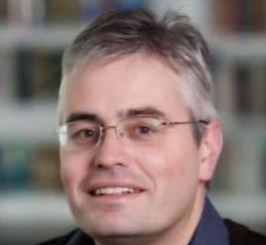
Dr. John Bacsa
Georgia Institute of Technology and Emory University
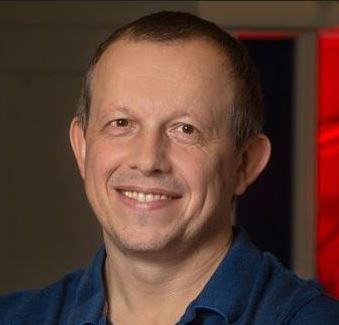
Dr. Mike Shatruk
FSU
https://www.chem.fsu.edu/~shatruk/
Subject: Advanced Functional Materials: from magnetism to applications
Dr. Shatruck is a Cottrell Family Professor in the Department of Chemistry at Florida State University. Dr. Shatruck’s group works in a broadly defined area of advanced functional materials. More specific research interests include photo-switchable molecular materials, intermetallic magnets for magnetic refrigeration and electric vehicles, and low-dimensional magnetic materials such as spin-frustrated 2D magnets and nanomagnets. The disciplinary focus of our work lies within inorganic materials chemistry, with strong interdisciplinary crossover to physical and organic chemistry, as well as to condensed matter physics and machine learning. Dr. Shatruck’s students and postdocs obtain diverse training in inorganic and organic syntheses, X-ray and neutron scattering methods, magnetic and electrical property measurements, optical, infrared, NMR, and EPR spectroscopy, as well as computational approaches to elucidation and discovery of new functional materials.
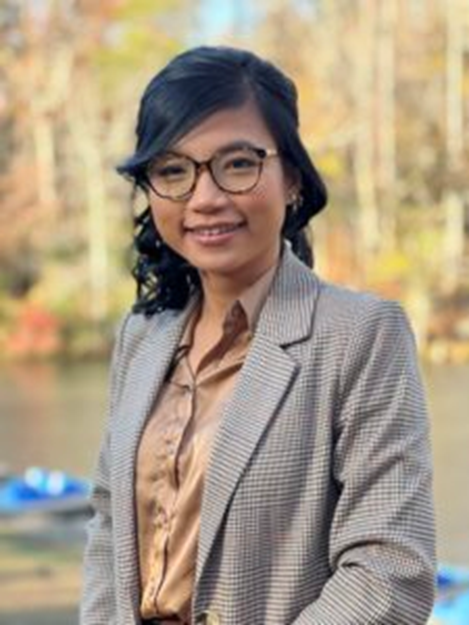
Dr. thao tran
Clemson
https://scienceweb.clemson.edu/tranlab/team/
Subject: The Chemistry of Quantum Spin Liquids
Dr. Thao Tran is an assistant professor in the Department of Chemistry at Clemson University. Dr. Tran’s research aims to address challenges in the functional properties of complex optical, magnetic and electronic materials for twenty-first century technologies by applying design-informed materials and chemical approaches. Dr. Tran got her PhD from the University of Houston and was a postdoctoral fellow at Johns Hopkins University.
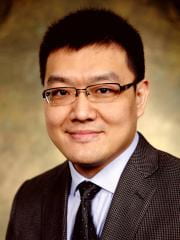
Dr. Hailong Chen
georgia institute of technology
https://hlchen.gatech.edu/
Subject: Materials Design Assisted by in situ XRD
Dr. Hailong CHEN is currently an Associate Professor in the Woodruff School of Mechanical Engineering at Georgia Tech. He received his BS degree in Materials Science and Engineering in 1999 and MS degree in Chemistry in 2002, respectively, from Tsinghua University, China. He earned his PhD degree in Chemistry at the State University of New York-Stony Brook. Before joining the faculty of Georgia Tech in 2013, he conducted postdoctoral research at MIT at the Department of Materials Science and Engineering
His research interest focuses on understanding the formation mechanism of solid state materials and the structure-property relationship. His research group at Georgia Tech has been working on development of state-of-the-art X-ray based in situ and operando characterization methods, such as synchrotron X-ray based in situ XRD, PDF, SAXS and XAS, and solid state NMR, etc. The ongoing projects include design, synthesis, testing and characterization of new materials for Li-ion, Na-ion and all-solid-state batteries, as well as metals and alloys as functional and structural materials
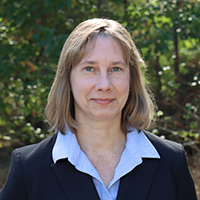
Dr. Ekaterina Vinogradova
Rigaku
Workshop: Reitveld Refinement
Ekaterina has over 15 years of experience in the field of X-ray diffraction. Her areas of expertise include a number of X-ray techniques including Powder Diffraction, Thin Film analysis and Small Angle X-ray Scattering. Ekaterina holds a PhD in Materials Science from National Autonomous University of Mexico
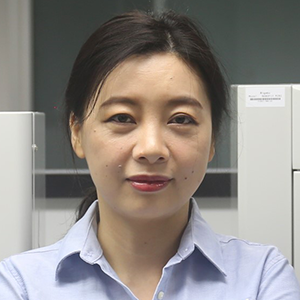
DR. Meredith Shi
rigaku
Subject: Pair Distribution Function Workshop
Meredith Shi is currently Senior Scientist for Business Development at Rigaku Americas. She got her Ph.D in Material science from Alfred University with thesis focused on crystallography studies from Neutron diffraction and synchrotron diffraction techniques. For past 12 years, Meredith’s work has been focused on X-ray techniques, including powder diffraction, small angle scattering, high resolution thin-film techniques etc.
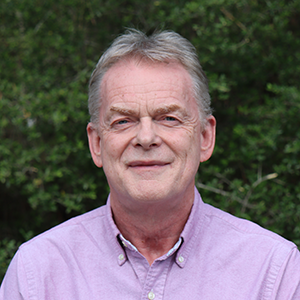
DR. SImon bates
rigaku
Subject: Lunch and Learn
Simon Bates serves customers as the VP of Science and Technology with Rigaku Americas. Simon Bates received his PhD in Applied Physics from the University of Hull, utilizing neutron diffraction to study the magnetic properties of rare earth materials. The neutron diffraction work was performed at the Institute Laue Langevin in Grenoble.
For his postdoctoral work in the Dept. of Physics at the University of Edinburgh, Simon helped design and build high-resolution triple axis X-ray diffraction systems for the study of solid-state phase transformations. Simon continued his work on high resolution X-ray diffraction systems at both Philips NV and Bede Scientific where he was focused on the development of X-ray diffraction and X-ray reflectivity methods for the measurement and modeling of advanced materials.
Before moving to Rigaku, Simon spent the last 15 years working in contract research organizations (SSCI and Triclinic Labs) studying solid state pharmaceutical materials. In particular, he was directly involved in the development of advanced characterization methods for formulated pharmaceutical products based on the analysis of structure (crystalline, non-crystalline, meso-phase, polymorph, salt, co-crystal..), microstructure (texture, strain, crystal size, habit..) and their functional relationships in the solid state.
Simon also holds an appointment as an Adjunct Professor at LIU in the Division of Pharmaceutical Sciences where he helps teach a graduate course on solid state materials analysis.

